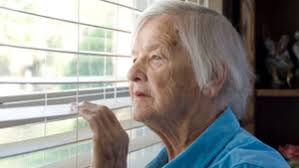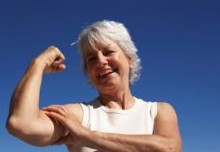 It’s not just about being lonely. Isolation may be a bigger senior health issue than even dementia – never mind that research has shown a clinical link between these two. I had a client a few years back who responded to a question from an attendee at her 100th birthday about how it feels to be 100 by saying simply, “Not so much peer pressure…” Now, this individual was surrounded by friends and family, but what she highlighted was the attrition of social connection that accompanies aging in most individuals.
It’s not just about being lonely. Isolation may be a bigger senior health issue than even dementia – never mind that research has shown a clinical link between these two. I had a client a few years back who responded to a question from an attendee at her 100th birthday about how it feels to be 100 by saying simply, “Not so much peer pressure…” Now, this individual was surrounded by friends and family, but what she highlighted was the attrition of social connection that accompanies aging in most individuals.
As one ages, one loses friends and loved ones and one also loses the ability to physically get out and about. As one becomes increasingly isolated, there are mental, physical and emotional correlates of the loneliness:
- Research published in 2012 showed a clear relationship between social isolation and death among adults 52 years of age and older. One cannot say that isolation kills people, but one’s chances of dying from any cause are greater if living alone.
- Research from the University of Chicago has found a clear link between levels of loneliness and poor cognitive function and even dementia risk. In other research reported in 2016 older patients with the amyloid markers of Alzheimer’s were 7.5 times as likely as those without the markers to report feeling isolated or lonely.
- The National Center on Elder Abuse adds to the bad news by reporting that socially isolated seniors have higher rates of physical or financial abuse. Are they easier targets for predators or do predatory caregivers isolate them to take advantage?
- Isolated seniors also report more of just about every chronic medical condition from COPD to heart disease, poor mobility and, of course, depression. Loneliness is even linked to high blood pressure. This, after taking into account gender, ethnicity and other factors.
Most of these can give rise to the proverbial chicken and egg arguments about loneliness as a cause of the problems or the problems themselves giving rise to loneliness. So, let’s turn it around and look at what you can do if you are one of the circle of caregivers for an older loved one. Loss of a spouse leads to isolation. Be present in the weeks and months (not just days) following such a loss to help an older loved one re-integrate into a new social support system. Transportation challenges can lead to social isolation. If you have a loved one without transportation, look for alternatives like para-vans, carpooling and volunteers. Caregivers are at risk for social isolation. Find respite care resources, lay volunteers from religious organizations and home care options to give these caregivers a break. And don’t forget the isolation of that caregiver’s care receiver. Loneliness can be contagious.
Volunteering can go the other direction also. Encourage your older loved one to engage in community activities, take a class or seminar, join a club, etc. And appreciate that with these added social activities you are helping to prevent a slide into unhealthy behaviors for your older loved one, such as smoking, drinking or just poor diet. Now is the best time of all to engage an older loved one in new activities. It is, after all, the New Year. And it is the season of long and cold nights. Encourage activities that can be part of the good habits of the new year.
Charlotte Bishop is a Geriatric Care Manager and founder of Creative Care Management, certified professionals who are geriatric advocates, resources, counselors and friends to older adults and their families in metropolitan Chicago. Please email your questions to info@creativecaremanagement.com.






